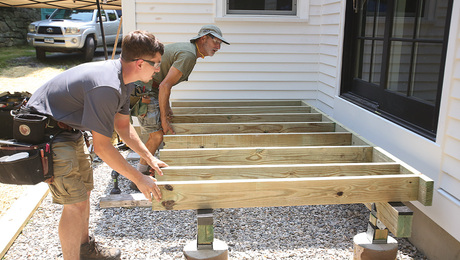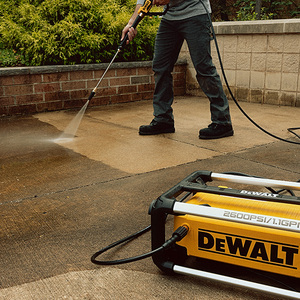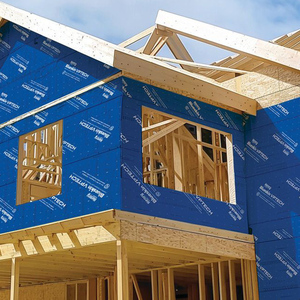Is It Folly To Start a Project in November?
I’m a total newbie, getting ready to start a major remodel of my house. Working with a seasoned contractor of course, but I don’t want to keep annoying him with my questions! 😛
I live in Northern California, near the coast. Our Winter Grading season is Oct 15-April 1, but the city will allow me to build during that time. I’ve talked to a number of people who say it’s not ideal, but my contractor is willing to work with me. Where I live, we get rain, but no snow or freezing temperatures over the winter. The water table is pretty shallow, about 3ft down to bedrock. My back yard fills up with about 6 inches of water when the rain is really bad (like last January, the wettest winter in 10 years).
I’ve been volunteering for Habitat for Humanity (highly recommended) to get some experience before I start this project, and a number of the guys I’ve talked to say don’t even try to build over the rainy season. But we live in California – it rains about the same during our winter as it did during the summers in Michigan when I was growing up! So I am trying to figure out whether or not it is doable to pour a foundation and frame a house over the winter in Northern CA, and if so, what the additional costs in labor and materials might be.
Advice, anyone? I found one good answer in the archives (http://forums.finehomebuilding.com/breaktime/archives/pouring-concrete-rain), but since that was from 18 years ago (!) I figured it would be worth it to ask.
Thanks!



















Replies
I'm up in Seattle area and build all year around.
Thanks junkhound!
I'm worried about the footings filling up with water before we get a chance to pour the concrete. It doesn't rain every day here, except maybe for a week or two in January/February usually. November/December we will have intermittent rain but also some really nice days. In your experience, can you either pump out excess water or let the earth soak it back up and still pour a foundation without a problem?
Everything I build I have footing drains arond full basements (yeah, I know, nobody builds with basements in PNW), so no worry about standing water. A few more yards of dirt and concrete and a lot of storage room.
A small sump pump can drain the footings very quickly.
Sump Pump
Thanks to both of you!
I had thought of getting a sump pump (I may need one anyway to figure out drainage on my lot, pretty much all of my neighbors have one).
It sounds like as long as water doesn't sit for too long and mess up the dimensions of the footing it shouldn't be a big problem. I am definitely going to work with my contractor to find the right solution and time the project in the best way possible. If I've learned anything as a newbie (and at Habitat) it's to respect the knowledge of people who do this work for a living!
Thanks junkhound!
I'm worried about the footings filling up with water before we get a chance to pour the concrete. It doesn't rain every day here, except maybe for a week or two in January/February usually. November/December we will have intermittent rain but also some really nice days. In your experience, can you either pump out excess water or let the earth soak it back up and still pour a foundation without a problem?
It's not ideal. The choice is yours
A major remodel in winter is not ideal. Not only as it concerns footings but also in relationship to wet lumber, possible rain leakage into the house and so forth. You may have rudimentary construction skills, but that is not enough...sigh. You don't say who will build the water-tight shell of the addition. If you are doing this, watch out! If your contractor is doing it, then it is up to him/her to decide the level of risk he/she is willing to shoulder. Keep in mind what wet lumber will cause interior problems down the road. These problem usually show up long AFTER your contractor has met his/her warranty obligation. Then what will you do? If you insist on forging ahead, then be sure your contract clearly spells out who is responsible for dealing with flaws that may appear down the road.
I've been the supervisor on several Habitat builds. I know first hand that, no matter the good intentions, these structures suffer from exposure to moisture. Volunteers never see these problems, because these problem don't show up until months after the celebratory ribbon-cutting ceremony.
Mel you are going to scare this guy silly. Rain can happen anytime of the year so the issue with wet lumber is a general comment that applies to all four seasons. Proper planning applies to any trade's work. I've poured 1000's of cubic yards of concrete in the middle of NY winters without a problem and I'll bet a bunch of people would not recommend... But if you supply temp heat and you blanket the work you are fine. Same goes for framing.
I am the realist :)
You will notice that the homeowner is a fledgling DIYer. It is not clear who will build the addition. Perhaps the pro will only lay the footing. Who does the roofing? Is that person licensed...insured...bonded? Who will remedy the potential problems that may not rear their heads until after the final payment has been made?
As I indicated, if the majority of the exterior work is handled by a pro builder, it is up to him/her to decide the level of risk the person is comfy with. I pointed out that just about every H4H building I've been involved in has suffered from the effects of wet weather. Is this DIYer aware of the pitfalls? I have worked many of my own projects through the ravages of a midwest winter. There is a difference between a DIY project and one handled by a pro. That was my main point. I have been called to countless poorly constructed projects, where the builder simply walked away from the problems he/she created.
An ounce of prevention...
Appreciate Realism AND Encouragement :)
Thanks Steve and Mel,
I appreciate the caution and really I want to make informed decisions and understand what I am asking of my contractor and his workers. Also, I don't want to bug him with lots of questions, so I'm trying to do my homework!
I looked up and it rains on average 46 days out of the year, mostly between October 15 and April 1. The worst I've ever seen it is one month about 12 years ago when it rained every single day in January but two. Even then the rain would let up at some point each day.
My suspicions are right that in many parts of the country people build under much worse conditions. I think around here a lot of workers would just rather not get wet, but as an owner-builder with some time and a desire to learn, I think I can mitigate some of that and keep the project moving (if more slowly) over the rainy season. I will definitely work with a pro for the entire project to make sure the house has the finish I want (and that my architect spec'd!).
Moisture content with wood is also a concern, and I'm hoping to get to a water-tight shell by January. I suspect that won't be possible, and that we will demo the house, pour the foundation and then wait for the rains to end before bringing the lumber out in late February or March. But that will help me get into the house by May/June, which is my goal rather than waiting to start in March or April and not getting in til August.
Anyway, thanks everyone for the advice!
We build all summer long in spite of heavy rains every day. If we waited for dry days nothing would get done. Just like everything else about construction you learn to work around weather. When I lived ln VA we poured concrete in heavy snow and built walls in the rain. Life moves on, you need to move with it.
Thank God you don't live/work in one of these cities...you would never start a project at all given it rains so much
Rochester & Buffalo NY 167 days of rain
Portland 164
Cleveland 155
Pittsburgh 151
Seatlle 149
Columbus 139